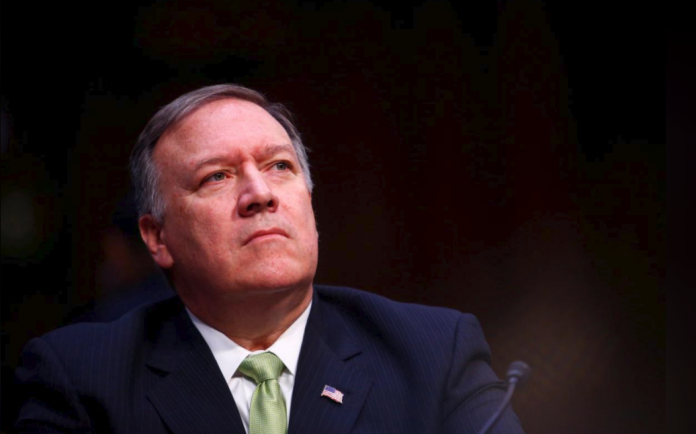WASHINGTON, April 22 (Reuters) – U.S. Secretary of State Mike Pompeo on Wednesday called for Iran to be held accountable for the launch of a military satellite, adding that he thinks the action defied a U.N. Security Council resolution.
Iran‘s Revolutionary Guards Corps said on Wednesday it had successfully launched the country’s first military satellite into orbit, at a time of heightened tensions with the United States over Tehran’s nuclear and missile programs.
The U.S. military says the same long-range ballistic technology used to put satellites into orbit could also allow Tehran to launch longer-range weapons, perhaps someday including nuclear warheads.
Tehran denies U.S. assertions that such activity is a cover for ballistic missile development and says it has never pursued the development of nuclear weapons.
A 2015 U.N. resolution “called upon” Iran to refrain for up to eight years from work on ballistic missiles designed to deliver nuclear weapons following an agreement with six world powers to limit its nuclear program.
Some states argue the language does not make it obligatory.
“Every nation has an obligation to go to the United Nations and evaluate whether this missile launch was consistent with that Security Council resolution,” Pompeo told reporters, referring to U.N. Security Council resolution 2231.
“I don’t think it remotely is, and I think Iran needs to be held accountable for what they have done,” he added.
Most U.N. sanctions imposed on Iran were lifted in January 2016 when the U.N. nuclear watchdog confirmed that Tehran fulfilled its commitments under the 2015 nuclear deal with Britain, France, Germany, China, Russia and the United States. But Iran is still subject to a U.N. arms embargo, which is due to expire in October, and other restrictions.
The U.N. sanctions and restrictions on Iran are contained in the 2015 resolution, which also enshrines the 2015 Iran nuclear accord. Tensions have flared between Washington and Tehran since U.S. President Donald Trump’s administration in 2018 withdrew from the accord and reimposed U.S. sanctions on Iran.
Trump said the deal, designed to put curbs on Iran‘s nuclear program in exchange for easing economic sanctions, did not include restrictions on Iran‘s ballistic missile program and support for its proxies in the Middle East.
(Reporting by Humeyra Pamuk, David Brunnstrom, Arshad Mohammed and Daphne Psaledakis; Additional reporting by Michelle Nichols Editing by Paul Simao and Alistair Bell)


